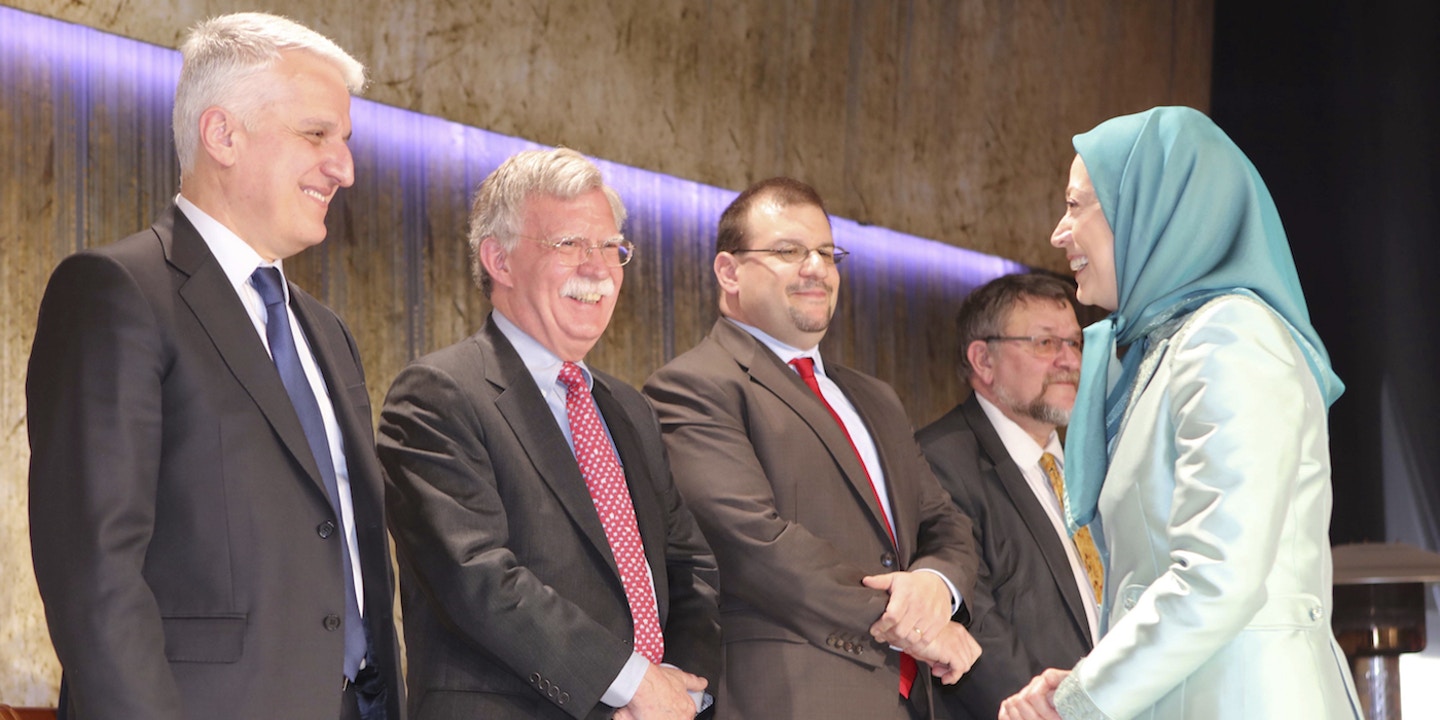
“Iran should be isolated until Iran changes,” US President Donald Trump’s attorney Rudy Giuliani, who claimed to be representing the Iranian group the People's Mujahideen Organisation of Iran (MEK), during a Middle East conference in Warsaw, Poland.
Giuliani’s suggestion for who will lead the democratic government after replacing the current Iranian government is Maryam Rajavi, the leader of the group that was, until recently, listed as a terrorist organisation by the US.
US support of the MEK is controversial not least because of the cult aspects which dominate its practices, but also the group’s violent past which some suspect continues today.
So, what is the MEK?
The MK is a religious and ‘Marxist’ group aiming to remove the Iranian government. It was founded in 1965 in Iran in opposition to the Shah of Iran, Mohammad Reza Pahlavi, and launched bomb attacks against him. The group is responsible for killing Iran’s then-president Mohammad Ali Rajai and Prime Minister Mohammad Javad Bahovar in 1981 and is suspected of the assassination of six American servicemen.
The group relocated to Iraq after the Islamic Revolution in 1979, when Iran proved that the group had lost a power struggle against the government, and found military support and shelter in Camp Hurriya in Baghdad.
When the eight-year Iran-Iraq war broke out in 1980, the MEK fought alongside Iraqi dictator Saddam Hussein. That led to them being branded traitors by the Iranian government, who executed thousands of political opponents, including MEK supporters, at the end of the war in 1988.
The US State Department added the MEK to its list of terrorist organisations in 1997, and the exact reason why is unknown but the group carried out several terror attacks killing Iranians, Iraqis and Americans in the 70s and 80s. The terrorist label was reversed under the presidency of Barack Obama in 2012 after the group led a multimillion-dollar campaign. A Guardian investigation found that the group flew funds to members of Congress while running a lobbying campaign to erase its past.
When the US illegally invaded Iraq and toppled Saddam Hussein in 2003, the group surrendered to the Americans and began presenting itself as a group advocating democracy.
Until 2012, the group remained in Iraq under US protection, but in fear of Iranian attacks, it was relocated to an unlikely country, Albania, where the group built a massive compound surrounded by barbed wire, high-tech surveillance and armed guards.
Why the US supports the MEK
There is one main reason behind the current US support of the MEK: defeating Iran, the biggest enemy of the US in the Middle East.
In 2015, the Obama administration, along with the UK, China, Russia and Germany reached a deal with the Iranian government. According to the agreement, Tehran would limit its nuclear programme and the world powers sat at the table would remove economic sanctions on Iran.
The US end of the deal eventually fell through when US President Donald Trump decided to withdraw from the agreement in May 2018. Trump’s National Security Advisor John Bolton, who long advocated for the removal of the agreement, and Rudy Giuliani, Donald Trump’s lawyer, have been taking to the stage at the MEK’s rallies, where the speakers are reportedly paid $30,000 to $50,000 per event. Despite speaking at the rallies, neither Giuliani or Bolton have ever confirmed receiving payment from the MEK.
For the US, the rebranded version of the group is the best alternative to fight against Iran, and Rajavi has been leading an expensive propaganda campaign through events at which she aims to attract more supporters. The group’s supporters often make appearances in front of buildings where Iranian officials are attending political gatherings outside of Iran. The group advertises itself as the ‘popular opposition’, but the fact is that it is "almost universally despised among Iranians both inside the country and in the diaspora."
Is it a cult?
Despite describing its founding principles as a mixture of Marxism and Islam, the group has practices that are characteristic of neither Islam nor Marxism. For followers of the MEK, applying those practices is a matter of dedication and obligatory as much as working against the Iranian government.
It includes the strict segregation of men and women almost from toddlerhood, compulsory divorce and a ban on having children. The members of the group reportedly attend weekly gatherings where they have to confess and clean any idea they have that could conflict with the rules.
The ideology is justified by the group as being in the state of war. “Soldiers can’t have wives and husbands,” one of the followers of the group was quoted as saying in a New York Times article in 2003.
Human rights groups often denounce the group’s cult practices and reported abuses such as torture, solitary confinement and compulsory divorce.
